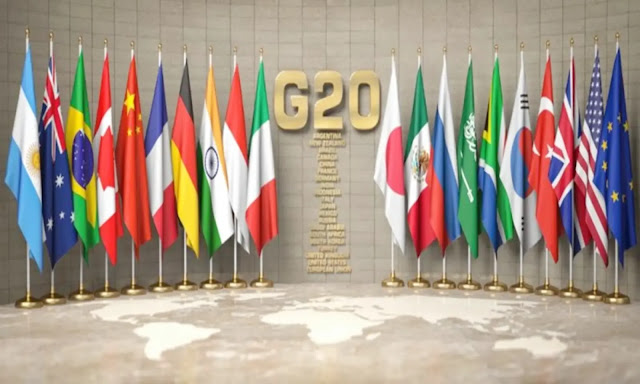Austria is socially, politically and economically unique also as it has the lowest unemployment rate in Europe, it is the second richest within the European Union and enjoys higher growth rates than most of the other European Union member states. It managed to overcome the financial crisis of 2008/09 rather quickly. For the eclectic, Austrian wine, Grüner Veltliner, is world famous for its quality and richness of flavor.
What is it in Austria that would interests Indians? Instantly its Moazzart, Strauss, Sigmund Freud, Austrian tourism, culture, would be of common interest. Surely not the economy or politics. Though Austria is leader in many ‘unsexy’ expertise like manufacturing of high end state of the art rail tracks, rope way engineering, cable cars, ski lifts, gondolas, water technology company…….surprisingly there are not much takers in India yet. With Indian government open to more and more technology transfer, investments, digital advancements and industrial tieups we haven’t explored the Austrian potential to the hilt and vis-e-versa. Austria has coalition government and politics which India looks up to. Surprisingly GDP of Austria is higher than Germany. Industry in green technology is what Austria is working on.
Talking to Cornelia Vospernik, a renowned Austrian radio journalist and broadcaster reporting on foreign affairs, on her umpteenth visit to India we got an insight into a lot of information and feelers about how the world is shaping up, what are the impressions that affect the geopolitics of our part of the world and specially how media works in Austria.
News doesn’t make money, it costs money, says Cornelia Vospernik, Austrian journalist.
Quite similar to our Prasar Bharati, Austria’s state broadcaster called ORF, is a tad different in the sense that it caters to a huge audience across the central European nation and adjoining countries. Austria being a German speaking country the broadcasters cater majorly to German listening audience. ORF has 2 radio channels and a TV channel. Interestingly ORF 1 has younger listeners age bracket of 18-40 yrs and ORF 2 is heard by the older generation ie above 49 years. They are hugely popular radio channels which Cornelia Vospernik says are popular because it offers its listeners popular music interspersed with news though sparsely and lots of commercials in between.
Addressing mainly a German speaking audience of the region ORF is a popular broadcaster in the region. Austrian audience are more interested in stories about people, human interest. It is very difficult to sell foreign news out here. ORF pursues its foreign news programme to educate their audience about what is happening in the world. Following up stories is necessary. And here radio does more relevant news. ORF’s foreign office in Asia is in Beijing, China which covers Asia. They create interest for stories.
Vospernik speaks as the voice of Austria and when asked how are India and Austria able to strike a common ground, she says India is very relevant for Austria. In the South East Asia region China and India are two countries that are the most relevant as they are the booming, bubbling and growing countries of this century and region. India more so as it has a young population compared to the aging population of China, which is also India’s advantage over China. People of Vienna are highly interested in culture and tourism. ORF covers India from China. Vienna is also the seat of some international offices.Its a great meeting place of central Europe.
Revenue module of ORF is basically the license fee and commercials. Small broadcaster have TV channels. Not many private channels and private funding like in India. Radio channels are h popular in Austria. They relay music non stop which is why they are so popular. There are no English Channels.
Print media in Europe is in crisis, Vospernik says. Electronic, TV and online are blending. Internet and TV are also merging. The trend is moving away from print and TV to online. For major events like 9/11 the relevance of TV is undisputed as they have an upper hand with their live telecast and instant reach to viewers with live visuals. But Radio will be always there. It has changed communication like never. It has made news simple as the medium is getting modern.
There is no information that is protected, around the world. Radio Channel ‘Austria 3’ is most popular in Austria. Interestingly here Radio generates money for TV. In Austria public broadcasters are the mouth of the government. Private investors do not invest in media. News doesn’t make money, it costs money even though German broadcasters have got big money.
Vospernik says Islam is an serious issue in South Asia. Immigration is another big issue in Europe. We have been accepting refugees from Syria, Africa. They come through Italy to Europe and then into Austria. Austria cannot accommodate any more. The govt is putting up tents to provide them with shelter and basic human conditions.
Jihadism is a matter of concern in Austria as some young people have reported to have gone joining Islamic militants. There is the problem of radicalization. Then there are Chechen revolutionaries. What young people see in media about jihadists is what drives them to the point of glamorizing it and that’s important. It is considered fashionable now among the younger generation, Vospernik feels.
News sometimes also means market share
Doing journalism since a very early age Vospernik says journalism across the world is changing. There is a thin line between reporting and opinion and its blurring day by day, she feels. Everybody can be a journalist. With blogging rising Bloggers in Iran are real journalists, she says. News sometimes also means market share. One is never completely objective. Its sensationalism v/s açtual reporting. Tabloids have forced govt of Austria to move the government.There is more direct reporting in Austria.
In contemporary political talk, environment is mainstream politics. She says there are strange anti smoking laws in Austria. Print media in Austria started a campaign. Surprisingly in Austria most of the reforms are print media driven.
Have Wiki Leaks affected anyways Austria or Europe! Vospernik does not think it has actually changed anything and also hasn’t meant much.
Inspite of the dissimilarities and diversities in both our countries and their societies India and Austria have a great potential to march into a bright and mutually beneficial future.

